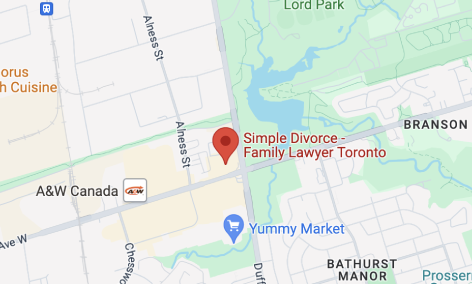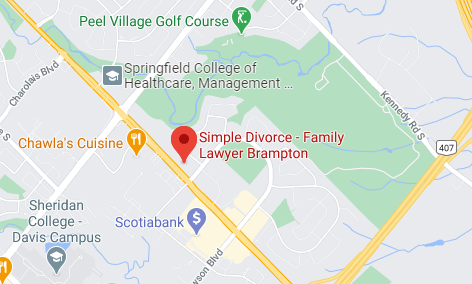 Entitlement to Spousal Support
Entitlement to Spousal Support
If you do not have the financial means to support yourself after a divorce in Ontario or a separation from a marriage or common law relationship, you may be entitled to spousal support depending on your particular circumstances.
In Ontario, spousal support may be ordered under either the Divorce Act or the Family Law Act depending on circumstances of your relationship. The Divorce Act applies to legally married couples who have been granted a divorce, or who are in the process of obtaining a divorce. The Family Law Act applies to legally married couples that choose to separate instead of going through a divorce, or common law couples who have separated after cohabiting for a specific period of time and/or who have children. Entitlement to and amount of spousal support will depend on the circumstances of each particular case.
Relevant Court Cases
The Supreme Court of Canada’s (SCC) decision in Moge v Moge, [1992] 3 SCR 813 and Bracklow v Bracklow, [1999] 1 SCR 420, articulate the legal principles for resolving issues regarding entitlement to and amount of spousal support.
Entitlement to Support:
In Moge, the SCC recognized that a marriage per se does not automatically entitle a spouse to support but in certain circumstances marriage may give rise to this obligation. Moge held that spouses are entitled to be compensated for contributions to the marriage and losses sustained as a consequence of marriage (compensatory support). Although Moge involved a claim for compensatory support, the court stated that non-compensatory factors such as the means and needs of the parties were not eliminated from consideration.
In Bracklow, the SCC stated that there are three grounds for entitlement to support: (1) compensatory (2) contractual (3) non-compensatory. The court notes that judges must exercise their discretion in light of the Divorce Act and provincial acts (FLA), which leave open the possibility of non-compensatory, non-contractual support. ]
The Divorce Act and respective provincial acts require the court to consider a variety of objectives and factors in determining support obligations. In Bracklow, the SCC notes that the different factors and objectives of spousal support that the court must consider in determining entitlement reflect two competing models of marriage and post-marriage obligations: the “mutual obligation” model and the “independent” model.
The mutual obligation model:
Under this model, primary responsibility falls on the ex-spouse to support their former partner rather than on the government. Support payments under this model are meant to replace the income that the spouse used to enjoy as a partner to the marriage. This model is the theoretical basis for non-compensatory support and reflects certain policy objectives including recognizing that when a relationship ends, the affairs may become intermingled to such an extent that it is impossible to disentangle them. It also recognizes the false idea that all separating couples can move immediately into absolute independence.
The independent model:
This model views both partners as autonomous individuals who retain their economic independence throughout the marriage. This model is supported by the “clean-break” theory, in which a former spouse compensates the other spouse for any costs of the marriage, then moves on with their life. The independent model provides the theoretical basis for compensatory spousal support and reflects some important policies: equality and independence of both spouses, rehabilitation, and recognition of the social reality of shorter marriages and successive relationships.
In Bracklow, the SCC notes that both of the above models allow spouses to vary their obligations through contract. The two models promote very different philosophies, values, and legal principles and it is dangerous to apply one model exclusively because many marriages are a mix of interdependence and dependence.
Ultimately, it is a matter of applying the relevant factors and striking the balance that best achieves justice in the particular case. Generally the court must consider the “condition, means, needs and other circumstances of each spouse”. The balancing also includes, but is not limited to, the length of cohabitation, the functions each spouse performed, and any other agreement or arrangement relating to support. Depending on the particular facts of each case, some factors may be more important than the others: “the judge must look at all the factors in the light of the stipulated objectives of support, and exercise his or her discretion in a manner that equitably alleviates the adverse consequences of the marriage breakdown.”(Bracklow at para 36)
Quantum of the Award
The same factors that go for entitlement have an impact on the amount of support. In Bracklow, the SCC held that “[t]he quantum awarded, in the sense of both amount and duration, will vary with the circumstances and the practical and policy considerations affecting particular cases.” Because the marital relationship between the parties may generate the obligation of non-compensatory support, it follows that diverse aspects of that marital relationship may be relevant to the amount of such support. Finally, one factor should not be considered to the exclusion of others.
What This Means for Spouses
Ultimately, the SCC makes it clear that there are three grounds for entitlement to spousal support: (1) compensatory (2) contractual (3) non-compensatory. Courts must consider all three grounds of support. Need alone may justify a spousal support award. In Ontario, entitlement to and amount of spousal support ultimately depends on various factors under the Divorce Act or FLA that the court must consider and on what is just and fair in the circumstances.
Due to the various factors that apply in determining entitlement to and amount of spousal support, and because judges have discretion in considering the facts of each particular case, courts approach spousal support cases in a fact-specific manner. Accordingly, in order to protect your rights and be informed of your obligations, you should seek legal advice from a Toronto divorce lawyer regarding the facts of your particular case.
For more information about spousal support, or about obtaining a divorce in Ontario, please contact our Toronto divorce lawyer.
NOTICE AND DISCLAIMER: The material posted on this website is for informational purposes only and should not be relied upon as legal advice. If you are in need of legal advice relating to your particular situation it is highly recommended to consult with a lawyer.
Helpful Resources:
Divorce and Separation
Family Justice Services
Child Custody and Access
Spousal Support
Child Support
Division or Equalization of Family Property
Treatment of a Matrimonial Home
Enforcement of Support Payments
Child Protection
Child Adoption



